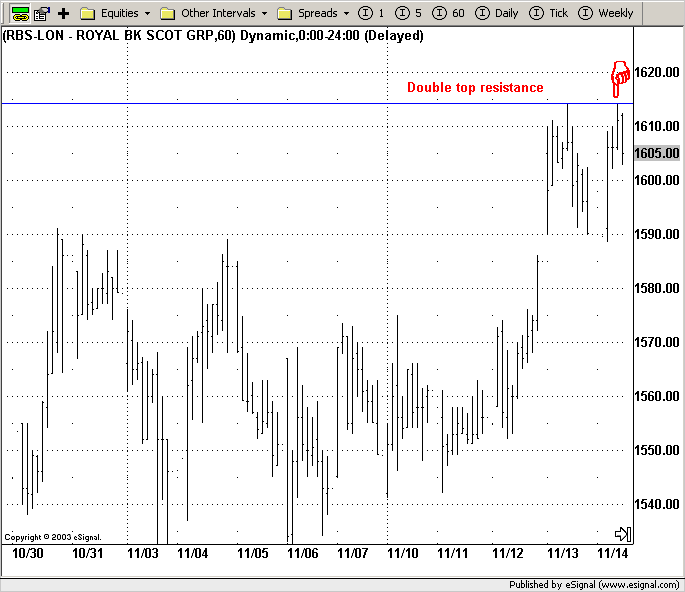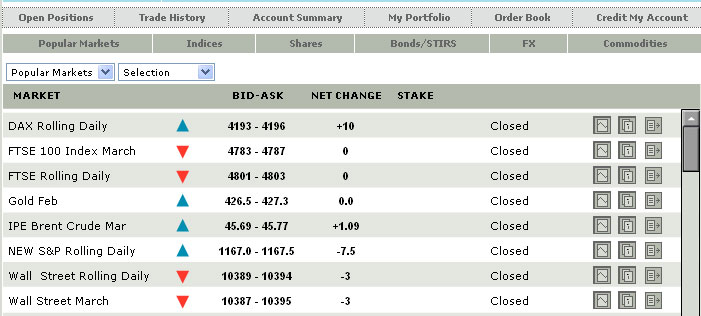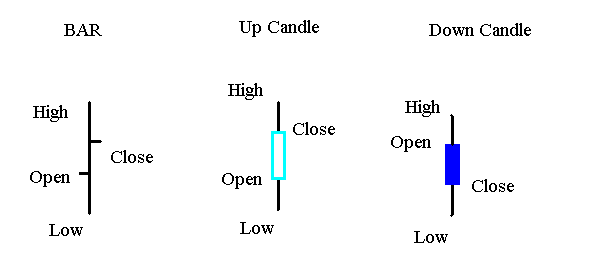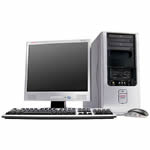You are using an out of date browser. It may not display this or other websites correctly.
You should upgrade or use an alternative browser.
You should upgrade or use an alternative browser.
Articles
My last article, the Hardware Guide, covered the basic requirements for a capable, reliable hardware setup to trade the markets effectively. Some of you may also be aware of my Techies Corner Guide, which provides some basic information about PC security, and links to a variety of downloadable programs and tests to use for the security-conscious amongst us. Some of the information in both may be duplicated here, but this article brings everything together as a "one-stop shop", and provides a valuable reference point for future use.
There are many problems that we, as internet-intensive users can come across during our daily work. Most of us use ADSL connections, and whilst this type of connection is more often than not essential for...
Mechanical systems do not work.
Let me rephrase that. Backtested over several years of data, mechanical systems do not show a sufficiently consistent profit and an acceptably low drawdown for the small trader to trade consistently, comfortably, effectively and economically.
To expand on that further, the results of a coded mechanical system might well show periods of excellent profits but, virtually without exception, they will also have draw-downs that most small traders would not be able to tolerate. In addition, most systems tested over several years invariably have considerable periods of losses, usually running over months if not years, plus long runs of losing trades.
If you start trading a mechanical system at the wrong time...
We get questions like this one quite often. We find that most aspiring traders don't have a clue as to what to expect from the market. Yet here they are, putting up their money. Most are going to learn the hard way. We have no idea in the world what you can expect to make in your first year of trading, or any other year, for that matter. What we can tell you is that without proper guidance and help, you are probably going to have some very bitter experiences. Why? Because your anticipations are almost completely wrong.
Futures traders, especially beginning traders, often open an account with unrealistic expectations of trading performance. These expectations could be formed by the sales literature for a trading program that emphasizes...

In the first and second parts of this series I looked at some of the various elements you will need to master if you are to have a chance of succeeding at trading. In this final article, I will run through a strategy I have used in the past to illustrate some of the concepts previously discussed.
Basic Strategy
The UK stock markets tend to be range-bound, especially on a short-term basis. This strategy looks to buy low and sell high, so it is swing based. It uses the basics of support, resistance and trendlines combined with money management as I've discussed earlier.
The Rules:
Look for a test of support or resistance or a trendline that fails to break.
If it tests support and bounces up, then go long and place the stop just...

This article is aimed at those who fancy a go at spreadbetting, but haven't a clue what to do. The hope is that by the end you'll know enough to get started with a tiny bit of confidence. It goes on a bit, but compare it to books on the subject and you'll realise it's admirably brief.
Trading requires deep pockets, right?
Nope.
I'm pretty sure that out of the 20 odd thousand T2W members not every one of them has £500,000 - £1,000,000 to invest - in fact I'd take a long right now on the probability that thousands and thousands would consider £1000 quite a big lump to invest, especially as so many of us are struggling to learn how to survive, let alone win.
So let's assume you have a few hundred, or a couple of thousand, to invest...

The Basics of Trading
I've had a long running thread on the T2W boards giving an introduction to the central themes of trading. This series of articles has been adapted from that thread and will take you through all the areas you need to get a start in trading, from chart reading to defining a strategy.
In Part 1 I will look at:
Basic chart reading
Money management
Exiting a losing trade
Setting a price target
Part 2 will then consider:
The importance of discipline
Paper trading
The trading plan
And finally, in Part 3, I will bring it all together by taking you through a simple trading strategy.
Basic Chart Reading
Ok let's start with the basics of chart reading and deal with Support, Resistance and Trendlines. This...

The Right Tools for the Job: a guide to the hardware needed to trade from home
As someone who's already considering trading, you'll already have a PC and be connected to the internet - you wouldn't be reading this otherwise - but you might be asking yourself just what sort of hardware and software does a trader need to give them an edge in today's high-tech marketplace.
In the last few years, the relentless march of technology has made trading from home a viable proposition for many people. With a fast connection, modern PC and a Direct Access Broker, we as self-employed traders are able to access the same tools and systems that not so long ago were strictly for the professional.
There are many different ways to trade the markets...

